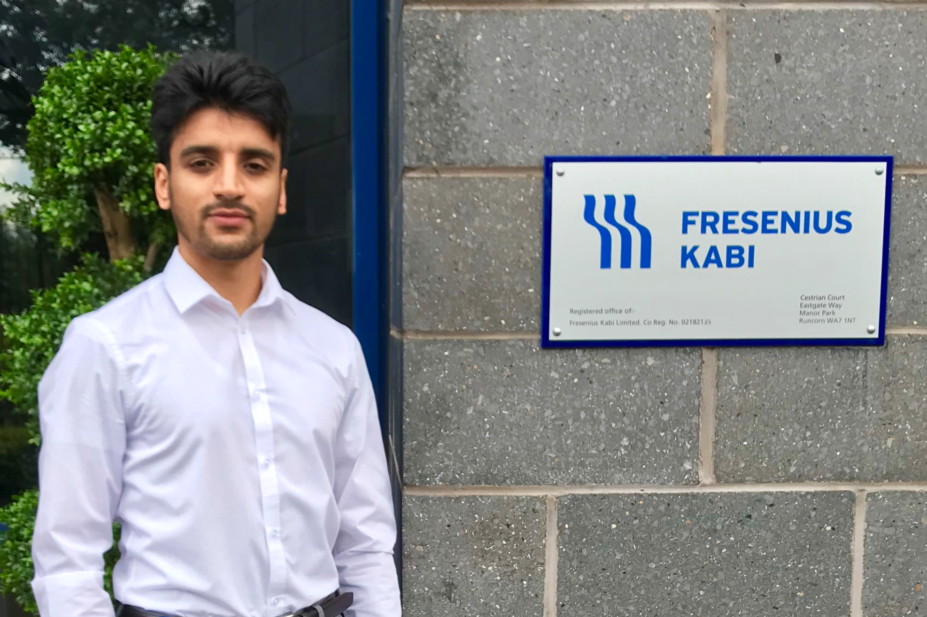
Ali Maasoumi Sarvestani
During my MPharm studies, I want to develop the skills to be successful in all sectors of pharmacy, and, ultimately, make a positive impact on the health and welfare of patients.
My degree provides opportunities to work in various sectors, and I want to explore as many of these as I can. I was attracted to the pharmaceutical industry because it covers many areas that interest me: research and development, quality control and quality assurance.
So in summer 2019, I enrolled in a four-week long industry placement at Fresenius Kabi — specialists in the production of parenteral and enteral nutrition preparations, and bio-similar medicines. It was an exciting opportunity to experience what it is like being a pharmacist in industry.
It was not easy to bag the placement. I applied to five summer internships and was rejected by four. But failure motivates me; not giving up and striving to achieve my goals are important to me. I reflected on each failure and asked for feedback so I could improve for next time. The feedback was mostly about my lack of industry experience. I used these setbacks as opportunities to show how determined I am to gain experience by applying for these internships. This is how I managed to land an internship with Fresenius Kabi.
During my placement, another MPharm student and I were assigned to a project that involved determining ways of improving the manufacturing process for parenteral nutrition bags and making the cycle more efficient. This seemed a daunting task at first, as neither of us had any experience in this area; however, once we started, we quickly adapted to our new settings.
We developed a study questionnaire and distributed it among staff members from various departments. We concluded that the main areas of improvement were communication and prioritisation. I also spent days shadowing various departments including pharmacy, aseptics, microbiology, sales and marketing, patient services, finance and distributions; it was interesting to see how the departments work together. At the end of the four weeks, we presented our findings to a team including the head of pharmacy and the head of operations. Our recommendations were well received and are currently being reviewed for implementation into everyday practice.
My studies set me up well for this placement. The University of Bradford’s school of pharmacy uses a team-based learning (TBL) style of teaching which prioritises small group work and application exercises over traditional lectures. I found the skills acquired from TBL really useful when applying for placements and during my time at Fresenius Kabi. These skills include communication, problem-solving, decision-making, leadership and team working. Using these skills every day made fitting into the team of senior scientists easy, and it felt like I was making a difference despite being just a pharmacy student, for now.
I definitely recommend anyone who has an interest in the pharmaceutical industry to apply for a summer internship — be proactive and look for the opportunities that are out there. It is an amazing opportunity to gain a better understanding of the processes involved in the production of medication and medicinal products. The skills you take away will be invaluable for Oriel interviews as part of the preregistration training recruitment process and your future practice. Don’t worry if you do not get the first internship you apply for — ask for feedback and work on these areas to help you improve for the next interview.
Abolfazi (Ali) Maasoumi Sarvestani, fourth-year pharmacy student, University of Bradford
Acknowledgments: Fresenius Kabi (Mathew Hanson, Max Hanson and Ricardo Martinez) and University of Bradford (Sue Jones, Kevin Adams and Justine Tomlinson)
You may also be interested in
What are the views of the RPS and Pharmaceutical Press on AI training using copyrighted materials?

HIV patients should switch to long-acting antiretroviral injectable treatments sooner, study concludes
